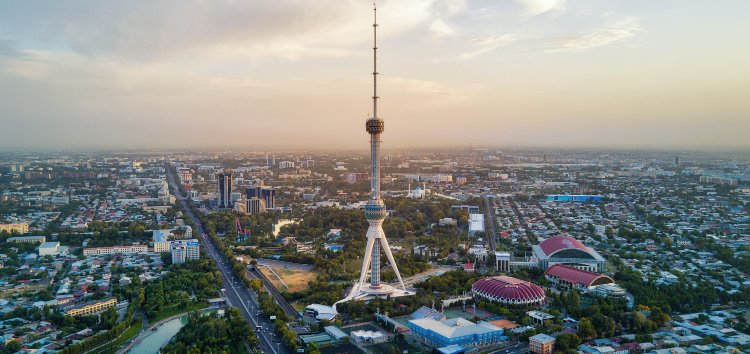ASTANA — The Kazakh economy is projected to expand by 3.9% in 2023 and 4.2% in 2024, with persisting inflationary pressures and uncertainties surrounding oil and commodity prices posing downside risks to the country’s economic growth, according to the European Bank for Reconstruction and Development (EBRD) latest Regional Economic Prospects report published on May 16.

Photo credit: majalat.com.
Kazakhstan’s economic outlook
Despite periodic disruptions at the Caspian Pipeline Consortium’s terminal in Novorossiysk, which hampered the country’s oil exports, the Kazakh economy grew by 3.2% year on year in 2022.
According to the report, in the first quarter of 2023, growth accelerated to 4.9% year-on-year, led by significant gains in construction – 18%, fixed capital investment – 16.1% and retail trade turnover – 12.1%. Industry (2.8%) and agriculture (3.5%) posted lower growth rates.
As for inflation, annual consumer price index (CPI) inflation peaked at 21.3% in February this year before dropping to 18.1% in March. Despite the National Bank’s efforts to tighten its monetary policy and scale back its involvement in financing post COVID-19 stimulus programs, inflationary pressures persisted amid rising transport, food and commodity prices.
The report states that Kazakhstan’s economic outlook benefits from the relocation of foreign firms, investment in new activities related to the exit of major global players from Russia, and ongoing efforts to diversify transport and oil transit routes.
According to the report’s forecast, if implemented, the country’s planned reforms to improve the business climate, reduce entry barriers to the economy’s heavy sectors, and minimize the footprint of politically exposed figures in the economy will promote foreign direct investment and the development of small and medium-sized enterprises in the medium term.
Central Asia’s economic outlook
As for the forecast for the Central Asian economies, the EBRD expects them to grow by at least 5.2% on average in 2023 and 5.4% in 2024.
The report predicts that the region’s growth in the next year will continue, with the relocation of Russian businesses and increased oil exports providing a boost to Kazakhstan’s growth, while expanded mining production and the reopening of China will benefit Mongolia.
The report notes that the Central Asian economies have proven resilient to recent adverse geopolitical developments, highlighting the increased trade cooperation between Russia and the region’s economies.
“All economies in this region strengthened their trade cooperation with Russia due to its forced pivot to Asia, serving as intermediaries and supplying their own products into the vacuum created by the withdrawal of Western firms from serving the Russian market,” the report reads.
According to the report, the volume of money transfers to Central Asia has skyrocketed, increasing deposits in the banking sector and boosting bank profits. The relocation of Russian companies and citizens increased the demand in the retail, real estate and hospitality sectors.
“In the first quarter of 2023, growth continued across the region, while CPI in most economies was still far above the target ranges set by central banks. Tajikistan – the only country in the region with single-digit inflation – has recently started to see its monthly CPI accelerating,” the report reads.
The report forecasts rapid growth of the region’s economies in the short term, with the uncertainty over global trends in interest rates, inflation, and commodity prices clouding the long-term outlook.

